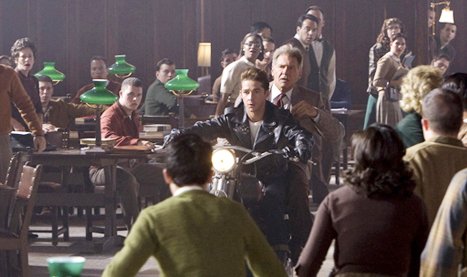Yeah, I know this isn't one of the better Indiana Jones movies. In fact its probably ranked below Temple of Doom. But there are some great one liners, and in this scene has a very important one. A student is asking Doctor Jones about some reading to which he does give a better reference to the student and then declares, "If you want to be an archaeologist, you have to get out of the library!"
While that is true, a great deal of your time will also be spent in the library. You need to look up old excavation reports, look for similar pieces, and histories of the sites you are studying. If you're lucky you find more recent publications, mostly from the eighties some nineties, but these are rare. You'll find a whole lot from the fifties and sixties, and even forties and thirties. Not that these aren't helpful, and don't provide a wealth of information, but what you have to remember is that archaeology was very different back then. The sixties not so much, but if we look back to Doctor Jones here, he is a very different kind of archaeologist.
The term that would better suit Dr. Jones is antiquarian. Antiquarianism is a step above treasure hunting, but not by much. You won't see Indiana Jones with pot sherds. No, he's after the good stuff. Gold, precious stones, the ark of the covenant. In its very early years archaeology was the hobby for the bored and rich. If you had the money you would fund excavations and even go on them yourself. Lots of sites, artifacts, and tombs are named for their rich discoverers (the Elgin marbles, tomb of the baron, etc). As a result we have plenty of excavated sites, but little information on them as the only interest was in the 'treasures' they held. So when looking at these older publications you need to remember what kind of archaeology was being practiced. What were the excavators interested in, and what might they have ignored because of the time they were practicing in.
These old books can be helpful in understanding sites, but I can only imagine what else has been left out, determined to be unimportant back then. Things that are a mere side note, that we will never see again, and who knows what information it could have yielded if only it had been set aside for a time when we had the understanding and technology to look at it.
